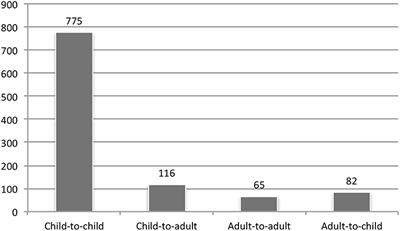EDITORIAL
Published on 11 Mar 2020
Editorial: Lived Culture and Psychology: Sharedness and Normativity as Discursive, Embodied and Affective Engagements with the World in Social Interaction
doi 10.3389/fpsyg.2020.00437
- 2,042 views
- 3 citations
14k
Total downloads
104k
Total views and downloads
Select the journal/section where you want your idea to be submitted:
EDITORIAL
Published on 11 Mar 2020
ORIGINAL RESEARCH
Published on 13 Dec 2019

ORIGINAL RESEARCH
Published on 01 Nov 2019

HYPOTHESIS AND THEORY
Published on 30 Aug 2019
ORIGINAL RESEARCH
Published on 14 Aug 2019

ORIGINAL RESEARCH
Published on 24 Jul 2019

ORIGINAL RESEARCH
Published on 11 Jul 2019

ORIGINAL RESEARCH
Published on 02 Jul 2019

CONCEPTUAL ANALYSIS
Published on 28 Jun 2019
ORIGINAL RESEARCH
Published on 26 Jun 2019
ORIGINAL RESEARCH
Published on 22 May 2019

ORIGINAL RESEARCH
Published on 24 Apr 2019

